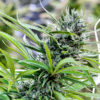
Legal
How Texas Accidentally Decriminalized Cannabis
Differentiating hemp from cannabis causes law enforcement to back away from testing low-level busts.
Texas might not have the most punitive cannabis laws in the United States, but no place that logs 80,000 misdemeanor arrests a year can claim to be cool or chill — even if the penalty can range from nothing to jail time depending on local attitudes.
While Texas does have a very limited medical cannabis program, efforts to expand that beyond CBD oil or legalize recreational weed outright have failed, meaning possession of 4 ounces or less or sales of 7 grams or less are still misdemeanor crimes. But so what? Misdemeanor bad laws still on the books are no longer enforceable, because the state crime lab is now refusing to waste its time testing tiny scraps of suspected weed for THC.
In late January, lawmakers in Austin, the city’s most liberal city, announced small-scale marijuana arrests were off after the Department of Public Safety state crime lab told prosecutors it would take up to a year to see if there was THC in any weed scraps that cops found lying around.
Why does it take so long to find out if weed is weed? Outside of testing by private labs, a luxury most governments appear unwilling to indulge, DPS appears to be the only agency able to perform more sophisticated drug tests necessary for low-level busts now that Texas legalized possession of hemp — a legal plant that happens to look and smell exactly like cannabis.
The idea was that these petty busts could resume as soon as DPS perfected its new test and started working through a backlog of cases, some of which date from the middle of last year. But on Feb. 18, agency Director Steven McCraw told the state’s law enforcement agencies that it would probably start testing on felony cases sometime in May or June, but in felonies only. Misdemeanor cases, like simple possession, are something the DPS lab simply does not have time for, McCraw wrote.
“DPS laboratories analyze more than 50,000 felony drug cases per year and we do not accept misdemeanor cases,” he wrote, noting that while the state Legislature did give DPS some cash to update its cannabis-testing protocol, lawmakers did not give DPS nearly enough money to run everyone’s pocket stash through the routine.
With more than 80,000 misdemeanor pot busts a year in Texas, “DPS will not have the capacity to accept those misdemeanor cases,” McCraw wrote. What’s more, he added, is that DPS’s testing protocol is good for plant material only — not for oils, edibles, or anything else, at least not for right now.
Exactly what this means, again, depends on where in Texas you find yourself. As The Texas Tribune reported, most big cities have their own labs to do the requisite testing, but as the experience in Austin demonstrated, not everybody — and even those that do aren’t guaranteed to have the equipment and techniques DPS is finalizing to tell weed from hemp.
Law enforcement officers told the Tribune that the shift is most likely to affect misdemeanor cases in rural counties that rely on the DPS lab for testing. In some of these, police and prosecutors are still ringing people up on pot busts using circumstantial evidence, but there’s always the risk that a judge or a jury will look askance at this and such practice will lead to a string of acquittals. That in turn would most likely lead to cops asking themselves, “Why bother?” and quitting the game entirely.
There is the chance that DPS will either find itself suddenly flush with cash thanks to a remorseful Legislature which found out that all but ending misdemeanor pot busts in Texas was not something that it set out to do. More likely, given public attitudes on the issue even in Texas, is that this accidental step towards decriminalization will be the first in a series of moves towards more realistic cannabis laws in the Lone Star State. If it had to happen thanks to a combination of federal hemp statutes and bureaucratic haggling over money, reform advocates will take it.
TELL US, is your state weed-friendly?
























